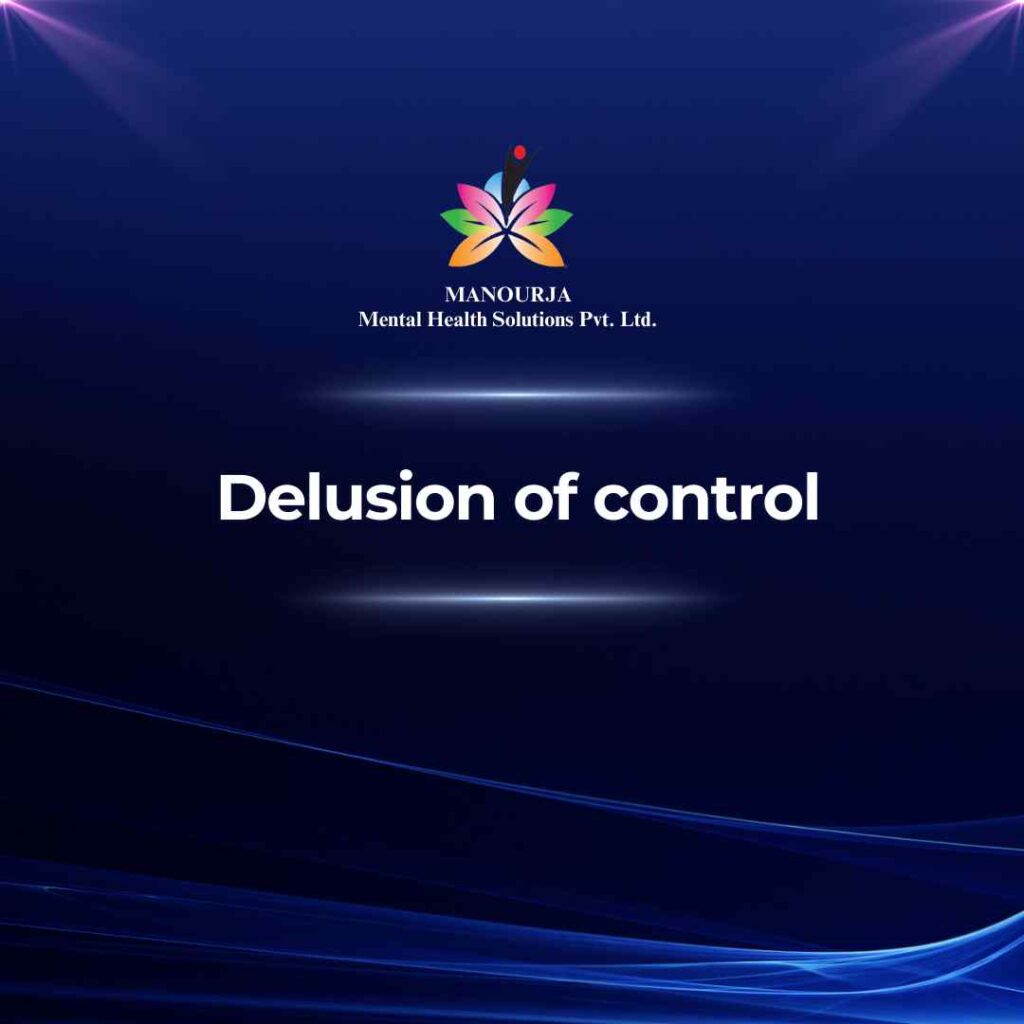Delusion of Control

Delusion of control is a specific type of delusion where individuals believe that their thoughts, feelings, or actions are being controlled by an external force, person, or agency. This belief is firmly held despite evidence to the contrary and can lead individuals to attribute their own thoughts or behaviors to external influences. Delusions of control can manifest in various ways, such as feeling that one’s movements are being manipulated by others, or that one’s thoughts are being inserted or removed by an outside entity.
Delusion of Control as a Symptom of Mental Illness
Delusion of control is most commonly associated with psychotic disorders, particularly schizophrenia, where it is considered a hallmark symptom. However, it can also occur in other mental health conditions, including mood disorders, substance-induced psychosis, and certain neurological disorders.
Mental Health Conditions Associated with Delusion of Control
- In schizophrenia, delusion of control often presents as a prominent symptom, alongside other delusions and hallucinations. Individuals may believe that external forces are influencing their thoughts, emotions, or actions, leading to a profound sense of loss of autonomy and agency.
Bipolar Disorder with Psychotic Features:
- During manic or depressive episodes with psychotic features in bipolar disorder, individuals may experience delusions of control, although they are less common compared to other types of delusions. These delusions may contribute to the overall severity of the psychotic symptoms experienced during mood episodes.
Substance-Induced Psychotic Disorders:
- Delusion of control can occur as a result of substance intoxication or withdrawal, particularly with hallucinogenic drugs or stimulants. The altered perception and cognition induced by substances can lead individuals to develop delusions of control, among other psychotic symptoms.
Brief Psychotic Disorder:
- Brief psychotic disorder is characterized by the sudden onset of psychotic symptoms, including delusions of control. These delusions may arise in response to acute stressors or traumatic events and typically resolve within a short period.
Neurological Disorders:
- Delusions of control can also occur in certain neurological conditions, such as Parkinson’s disease or epilepsy, where disruptions in brain function may lead to alterations in perception and belief systems.
Delusion of control can have significant implications for an individual’s functioning and may contribute to distress and impairment in various areas of life. Treatment typically involves a combination of antipsychotic medications, psychotherapy, and supportive interventions aimed at addressing the underlying mental health condition and promoting insight into the delusional beliefs. Early intervention and comprehensive care are essential for managing delusions of control and improving overall mental well-being.
At MANOURJA, we believe in the transformative power of counseling. Our experienced therapists offer a safe and supportive space where you can explore your thoughts, emotions, and challenges. Through personalized counselling sessions, we’ll work together to develop coping strategies, build resilience, and achieve lasting positive change. Discover the path to a healthier, happier you with MANOURJA counselling services.
MANOURJA Rehabilitation Services
At MANOURJA, we’re dedicated to helping you in rebuild your life, after difficult times. Our rehabilitation services focus on understanding what you need to move forward, whether you’re recovering from addiction, trauma, or any psychological – social challenges. We create personalized plans, that are all about helping you, regain your strength and find hope again. With a caring team by your side, you’ll have the support to make real progress and take steps toward a brighter, healthier future.
